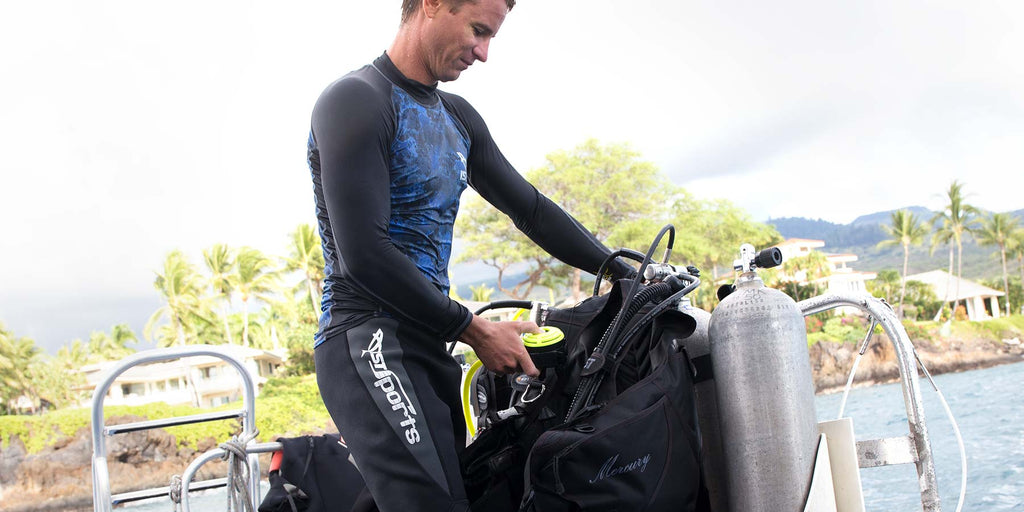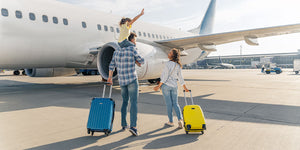- Home
- Shop709 Blog
- How to Travel with Scuba Gear
How to Travel with Scuba Gear

Owning your own dive gear can save you tons of money, particularly if you dive pretty regularly. But when it comes down to packing for your next trip, you’ll find that having your own equipment does present some of its own challenges. Namely, it can be difficult to take the hefty equipment with you when you travel. Luckily, our scuba experts have put together some of the most important tips when it comes to packing your gear for a dive trip. Consider this your checklist for any scuba diving vacation.
Use a Scuba Gear Bag
It may seem like a waste to buy a special bag for packing your scuba equipment, but here’s the thing: a standard luggage bag is not designed to hold oddly-shaped gear like fins or bulky items like your BCD. Consequently, you’re going to have a hard time squeezing everything into a basic bag. Scuba gear bags like this one are specifically designed to hold bigger gear items plus extra space for smaller accessories. They also usually have more pockets so you can organize your gear in a way that’s easy to find.
Keep Your Regulator in Your Carry-On
Your regulator is your lifeline more than any other piece of gear. While most BCDs have built-in cushion that keeps them protected, your regulator is a little more delicate. Keep it in a regulator bag and stow it in your carry-on. This keeps it from being tossed around and mishandled once you’ve checked it in.
Pack with a Plan
While your BCD should always be the first thing to go in your bag because of its size, try to keep the rest of your most delicate items in the center of your bag. Create a frame with sturdier items like your fins, and use your wetsuit to cushion the smaller accessories that could break more easily, like your dive computer. Less important items like slates, clips and torches can be stored in pockets.
Above all, the most important thing to keep in mind is to be considerate and polite when you travel. Aside from the way you actually pack your bags, answer the questions of TSA agents and other airport personnel calmly and patiently. They don’t always understand all of your equipment, and giving them the time of day without getting frustrated will help the process go much more smoothly.






Comments 0